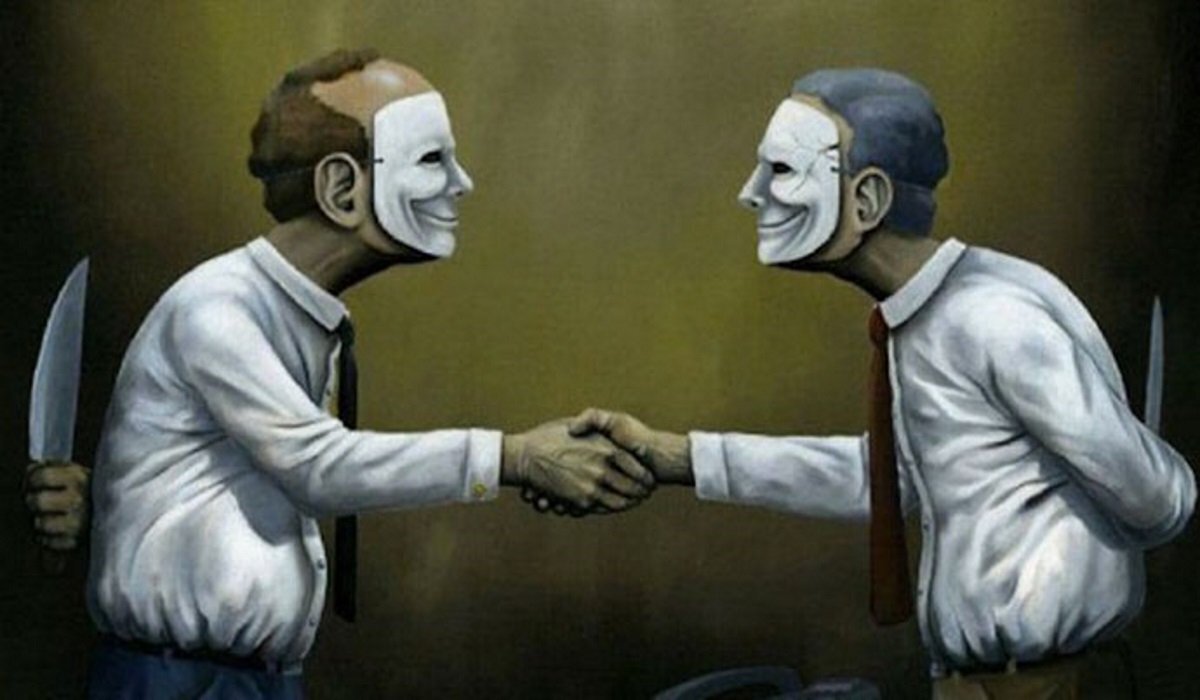The True Meaning of Hypocrisy: Making Yourself Feel Better Than You Deserve
A study published in the Journal of Personality and Social Psychology proposes that when an individual publicly promotes immoral behavior while privately behaving virtuously, they are viewed as enjoying “undeserved moral benefits” and thus, deemed a hypocrite.
It’s no surprise that if the sinful behavior of someone who prides themselves on being a virtuous person were exposed, they would likely be called out on their hypocrisy. Hypocritical behavior often angers people especially in the context of moral behavior, as that signals a lack of trustworthiness in social interactions.
A clear example of this occurred in 2015 when hackers released the names of people interacting on a website designed to facilitate extramarital affairs. Amongst the names was a family values activist who built his career around championing the importance of marriage. Expectedly, he was publicly shamed and lost his job for his involvement with the website.
Interestingly, however, the CEO of the company admitted that he practices marital fidelity in his private life, despite promoting the opposite with his online business. So he claims to be a good person in his own life, but is that enough?
According to the researchers, people who act more virtuously in private, will also be deemed as a hypocrite. This is because, to the outside view, these individuals are using good deeds to feel less guilty about their public sins. In other words, they are enjoying “undeserved moral benefits”.
The study & findings
The researchers performed several experiments to test their hypothesis. The first experiment was designed around the real-life example of the CEO mentioned above. All the participants read factual information about how he had promoted adultery through his website and his book aptly titled Cheaters Prosper. Half of the participants then were informed that the CEO claimed to be faithful to his own wife.
As predicted, the CEO was judged as more hypocritical when participants knew he practiced monogamy. However, overall, knowing about his marital fidelity resulted in more praise. Thus, remaining faithful to his wife outweighed his hypocritical behavior.
In the second experiment, participants read a case study about someone who privately donated to a charitable cause (e.g. reducing tobacco use) while working for a company opposing that person’s good deed.
The researchers found that helping anti-tobacco campaigns led to less praise of the target individual if the charitable behavior was inconsistent with their public image (e.g. working for a tobacco company) than if there wasn’t any inconsistency (e.g. working for a fast-food company).
In the following study, participants read scenarios about people who acted virtuously in private while openly working for companies that caused harm. However, in these scenarios, it was made clear to participants that the target individuals in the scenarios had engaged in the virtuous behavior without anyone else knowing. In other words, to rule out any explanation of perceived publicity.
The results of this experiment were consistent with the previous two experiments. Participants rated the scenario as more hypocritical when the person engaged virtuously in private. This supports the researcher’s hypothesis, since it suggests that the people in the scenarios were trying to morally cleanse themselves by engaging in good deeds to ease their guilt.
The last experiment also required participants to read scenarios about the harmful behavior of a person whose private charitable contribution was described as (a) a successful attempt to alleviate his guilt, (b) an unsuccessful attempt to alleviate his guilt or (c) without mentioning any such feelings (control condition).
The results of this experiment showed that private virtuous behavior seemed more hypocritical when it alleviated the person’s guilt for their harmful public behavior. These results also shed light on an important distinction: using private virtuous behavior to cleanse one’s conscience may only seem hypocritical if the strategy works.
Overall, people judge others as more hypocritical and look down on them when they covertly perform good deeds that contradict with their less virtuous public-facing behavior. This holds true even when the good deeds are performed in secret.
In this case, people likely perform good deeds to morally cleanse themselves to alleviate their guilt for their harmful behavior. For the individual, this may seem like a reasonable strategy of self-preservation. But it can backfire for the person if that knowledge becomes available to others. Those people privy to such conflicting behaviors will get a whiff of questionable ethics: someone whose actions are done to make them feel better about themselves.


